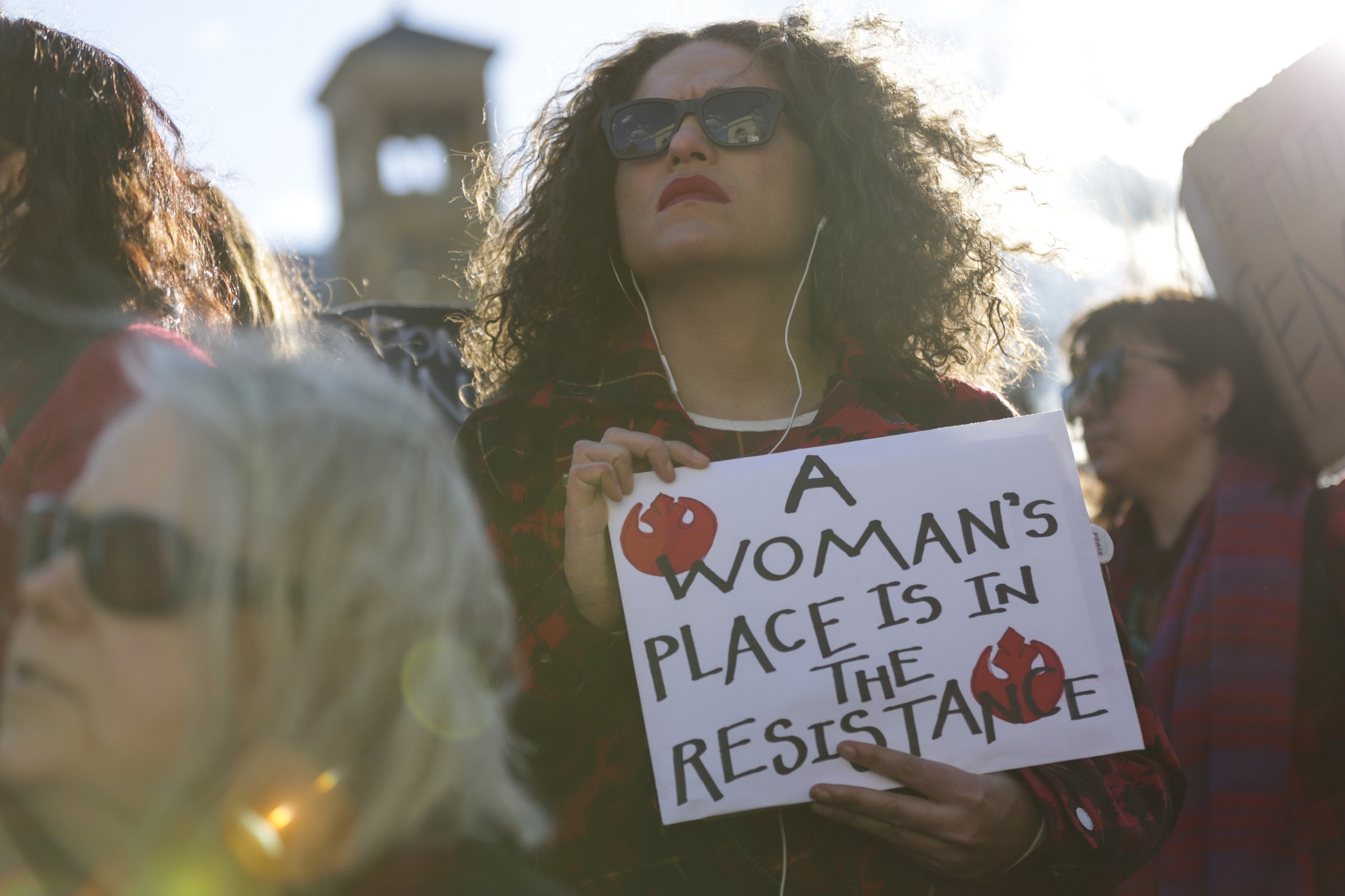
I am an artist — a writer of nine books — which means that I spend my days alone in a room making things that the world has not asked for. In the best of times, the endeavor feels borderline futile. Who’s going to care? Why does it matter? What difference can my tiny little words possibly make?
But in recent months (since Nov. 8, to be precise), this feeling has grown exponentially in me and in just about everyone I know. We wake up in the morning, and with our eyes half open, we peer at our screens at the news of the day. And the news of the day is relentless, dark, worrisome, grim. Before we’ve even brushed our teeth, we’re wondering if the world — or at least the world as we know it — is ending.
Because I teach writing as well as practice it, I’ve had to figure out some answers to these questions. My students look to me to tell them why what they do is still meaningful during these chaotic times. And I tell them what I first learned about succumbing to despair a long time ago: When my son, who is now a gorgeous, brilliant 17-year-old, was an infant, he almost died. He had a rare disease that kills most babies who contract it. In the year during which my husband and I spent every waking moment trying to save his life, I was unable to write. I would climb the stairs to my office and stare at the walls, wondering why I had ever done something as stupid and ridiculous as to become a novelist. I should have gone to medical school. Or nursing school. Or whatever school where they invent medicine that saves babies’ lives. I should have done something that mattered.
But slowly, surely, as my baby miraculously recovered, I began to see the value in what I had to offer: language. I wrote a novel about a terribly anxious mother, and then moved on to other books, other work. I used what I had at my disposal — the tools in my toolbox, sharpened over a lifetime — to chisel out something that might matter. I was a writer, so I wrote.
You might be a lawyer, a chef, a student or a bartender. You might be studying fashion or mechanics or journalism. You might be married, having babies, single, straight, gay or trans. You might live in the city, the suburbs, the rural countryside. Wherever and whoever you are, you might be finding yourself at loose ends after you — after we all — begin each day staring at the disaster that unfurls on our Twitter feeds.
But the only response — the largest, most large-hearted and ultimately most effective response — is to get on with our days. To use the tools we have. Which is not to say that I am not filled to the brim with a sense of moral outrage. I’m doing what I do best, as we all must. This is another kind of protest, another way of refusing to succumb to despair. We sit down to write, to paint, to teach, to make a Béchamel sauce, to draw up a contract, to make a pattern, to bring our whole selves to our work and to those we love. We ignore the inner voice telling us that there’s no point, that what we have to offer doesn’t matter. It matters more than ever.
Dani Shapiro is the author of nine books. Her latest memoir Hourglass, comes out April 11.
MOTTO hosts provocative voices and influencers from various spheres. We welcome outside contributions. Opinions expressed do not necessarily reflect the views of our editors.
More Must-Reads from TIME
- Cybersecurity Experts Are Sounding the Alarm on DOGE
- Meet the 2025 Women of the Year
- The Harsh Truth About Disability Inclusion
- Why Do More Young Adults Have Cancer?
- Colman Domingo Leads With Radical Love
- How to Get Better at Doing Things Alone
- Michelle Zauner Stares Down the Darkness
Contact us at letters@time.com